
Emotions can be mystifying.
I’m sure we can all relate to those confusing experiences where one minute we are relaxed and laughing, and then in the next moment, we are suddenly anxious and upset. Or how about when we find ourselves attracted to someone we don’t really like? Even though it can seem that they they pop up out of nowhere, puzzling our logical minds making our lives more difficult, as it happens, our emotions are quite informative.
Research into heart-brain coherence has shown that our emotions can actually be a better barometer of what’s going than our thoughts. Our minds can confuse us. We all have confirmation biases, and can easily fall under the Dunning-Kruger effect. According to cognitive neuroscientists, we are only conscious of about 5 percent of our thoughts, and most of our decisions, actions, and behaviors are dependent on the 95 percent of brain activity that goes on in our subconscious.
Whether we are aware of them or not, our underlying beliefs about emotions can affect our productivity, happiness, and even our physical wellness. Neuroplasticity has shown that it’s actually our emotions that turn gene expression on or off in the body (Dispenza, 2019). Meaning, our emotions are directly linked to our physical health.
The times we are currently living in have been uncertain to say the least. My personal motto for the last while has been: ‘Get comfortable with being uncomfortable’. However, whether provocation comes on a micro-personal level, or on a macro-global level, the only way out of oppositional moments is through them.
If you were to really think about it; the only constant in life is change.
We can’t avoid change, and it may be best to try to see it as an opportunity-even, or rather, especially-if it presents to us as a challenge. This shift in our mindset can help keep us from slipping into being a victim of circumstance- where we believe life is happening to us, and not for us. This perspective doesn’t mean we can necessarily control the external world any better; but it does mean we can start to control whether we react or respond.
Life is about growth and not trying to bypass these edgy moments. If possible, we need to try to embrace them with compassion and grace. As such, it is very important for us to acknowledge, accept and honor all of our emotions. There’s no room for judgment.
Proven practices such as meditation, mindfulness, and journaling can help illuminate to us how we are feeling and provide clarity. I have found that reading can also be very helpful with this.
Instead of choosing a your next book based off the best-sellers list, or a friend’s recommendation…how about choosing a read based on how you are feeling in that moment? Personally, I like to have a few different reads-on-the-go…picking them up and putting them down depending on my mood.
Here’s a list of recommendations based on the larger mood-trends of 2022:
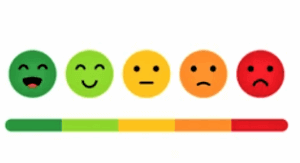
Mood: “Lockdown life is so boring…I wonder what famous people are up to?”
It’s all about authenticity for these 2 biographies.
Will is less of a journey and more of a wild-ride. This book is caulked-full of insights into the intense and amusing life of Smith. There are many stories in this book from his youth; such as, witnessing his militerisitc and erratic father striking his mother at the age of 9, and how he he first got interested in music a few years later. Smith is very open and candid about his progressive marriage with wife Jada Pinkett-Smith in this book. A favorite ancedote of mine was an amusing story about his 50th birthday party where he went backward bungee jumping…although to be honest, it could have struck me as more comical when I read that part, as I kept picturing him oddly confused about how bungee jumping is supposed to work in the first place.
Although Smith claims he didn’t read a book cover to cover until he was “well into” his 20s, it’s clear his talent as a story teller that reaches far beyond music and film making. Co-written with Mark Manson, a mega-personal-growth author who is known for using shocking profanity (see below recommendation), Smith’s memoir is not only a deep dive into his life before stardom; it also reads as a call to self-actualization.
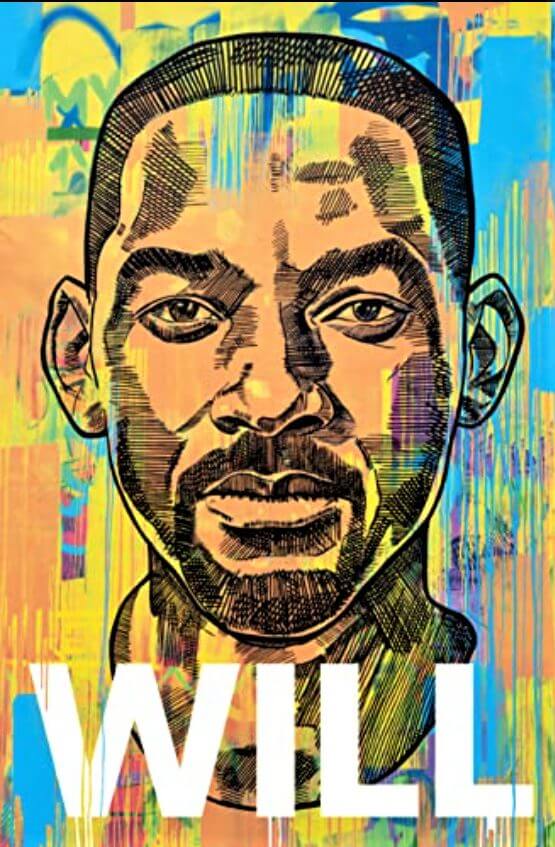
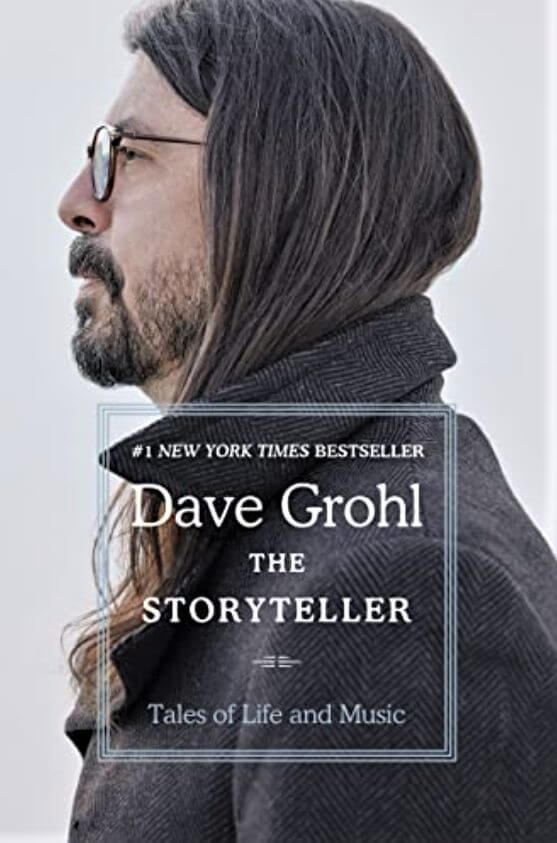
Continuing in the vein of being real, we have The Storyteller. Dave Grohl is gold. Honestly, I could just stop the book review here. Frontman of the Foo Fighters, former drummer for Nirvana, a socially-conscious individual known for promoting human rights- the guy has the Midas-Touch and he’s humble to boot. Dave is also known for being super down to earth and doing things like stepping in to stop fights at his concerts and hosting barbecues for firefighters battling wild fires.
So it should come as no surprised that his unusual mix of pragmatic-buoyancy shines all through this memoir. The Storyteller is full of fantastic tales of playing in concert venues all over the world, as well as, working with legends such as Iggy Pop and Tom Petty, and meeting musical pros such as Joan Jett and Little Richard.
Grohl is a bonafide rock star. Ironically, when you read about his youth as a clumsy kid, untrained drummer and high school drop- out, it seems like he was a very unlikely candidate for global stardom. The secret to his success appears to be that he isn’t trying to be anything, let alone a “super-star”, it’s clear Grohl is just being himself.
Mood: “Introvert: It’s not that I don’t like people…I just want to be around animals and plants right now.”
Imagine being able to confidently decline invitations and turn down requests without a second thought or feeling guilty. Imagine being able to respectfully say no to people asking you for favors without needing to invent a reason as to why. The Art of Saying No helps us understand why we may have issues with boundaries, to identify what our personal limits are, as well as, understanding why this is so important for our own self-care.
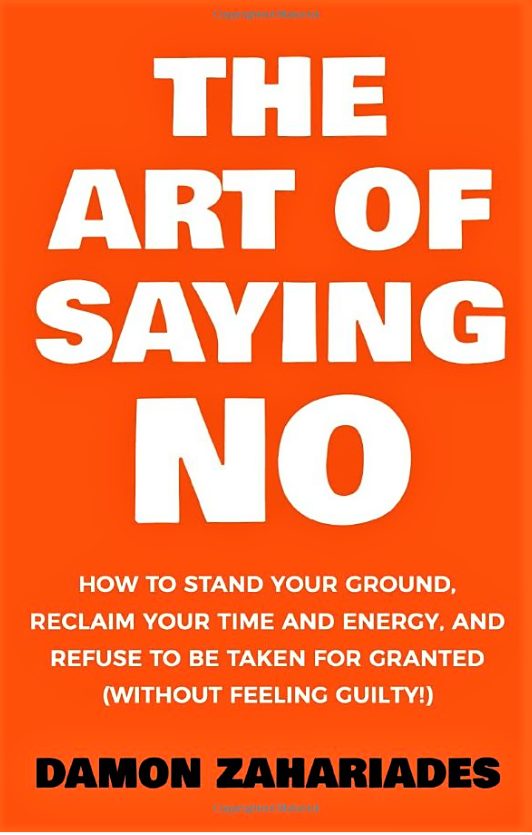
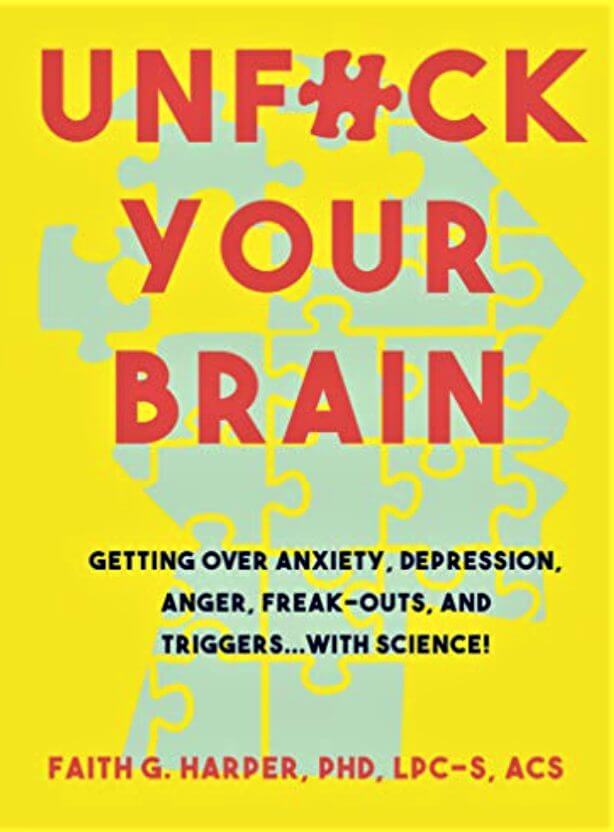
Along that same wave-lenght is Unf–uck Your Brain. Sometimes our brains can be real jerks — causing us to melt down in a coffee shop, poke at our partners, get addicted to something, or completely shutting down when we need them most. That’s where this book comes in.
With insight, fortitude and playful R-rated humor, “Dr. Faith” decodes the science behind what’s going on inside our heads, and the process of retraining your brain to respond appropriately to everyday life. As Harper writes; “Knowing what’s going on up in your brain is HUGE. Adaptive coping strategies, bad habits, and funky behaviors all wire in similar ways. And research is showing that these issues are actually some of the easier ones to treat in therapy…if we address what’s really going on, rather than just the symptoms”.
Mood: “Argh!: Everyone needs to piss-off! (but not really).”
One could imagine from titles like; Everthing is F*cked: A Book About Hope and Surrouned by Idiots, that these witty books are fantastic odes to-telling-people- off written by devilishly-clever high-functioning sociopaths. Sadly no; the telling-off part is only intermittent. However, they are still fantastic reads!
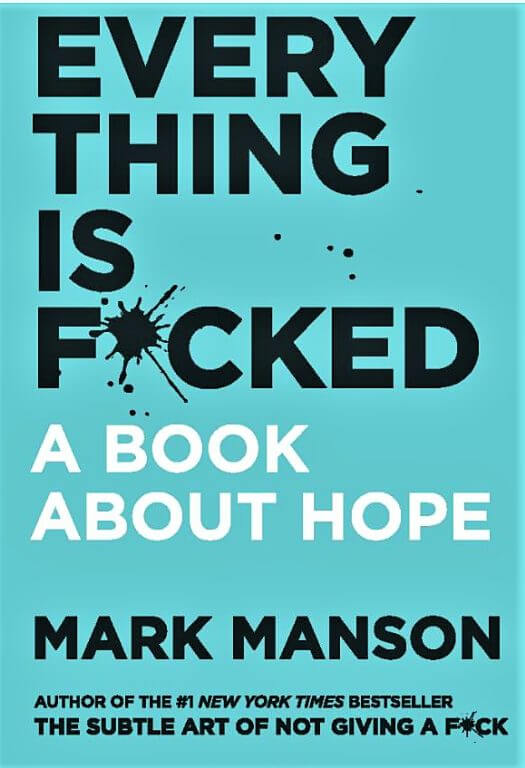
Manson is questioning everything in his follow up novel to his smash hit The Subtle Art of Not Giving a F*ck. In his latest work, Manson draws on the psychological and philosophical wisdom of the ages, as well as, dissecting everything from entertainment, pop-culture to the internet, in order to answer these sorts of questions. This book is a hilariously engaging examination of our assumptions and conventional wisdoms on what makes life worth living and truly gives us joy.
Do you ever feel like no one understands you? You are not alone.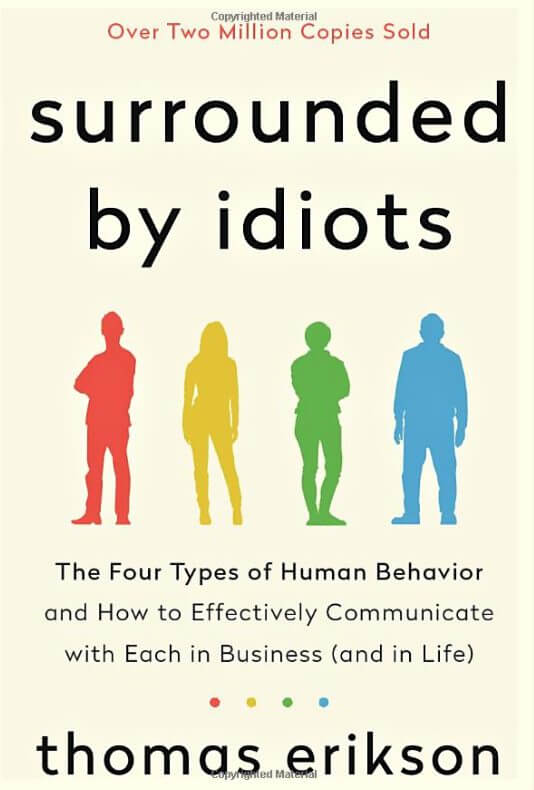
After a disastrous meeting with a highly successful entrepreneur, Thomas Erikson became captivated with understanding how people function and why it’s often difficult to connect with certain sorts of people. Surrounded by Idiots is an international phenomenon, selling over 1.5 million copies worldwide. It offers eye-opening and yet simple methods for assessing the personalities of the people we communicate with – in all aspects of life – based on four personality types (Red, Blue, Green and Yellow). Erikson provides insights into how we can adjust the way we approach and communicate for more successful and rewarding interactions.
Mood: “Fire has been Lit!: Change, Empowerment and Deep Dives.”
Most of us try to get what we want in life by controlling the external world and getting stuck on people, places, and things – which usually doesn’t work very well. The Power Of Letting Go takes a different approach allowing everything to happen more easily. In this book, John Purkiss offers meaningful insights and creative ideas on how to let go. This is not just another self-help book, but rather a road map to clarity.
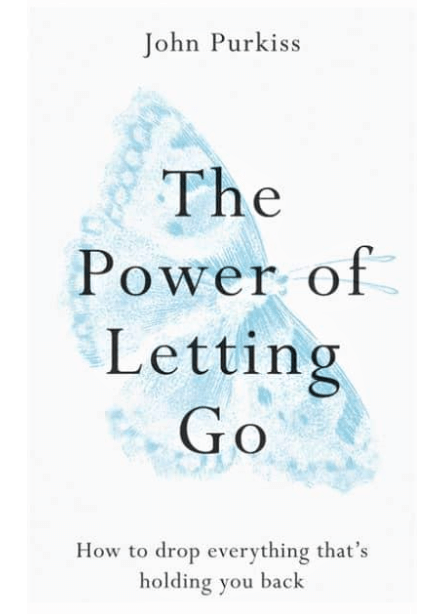
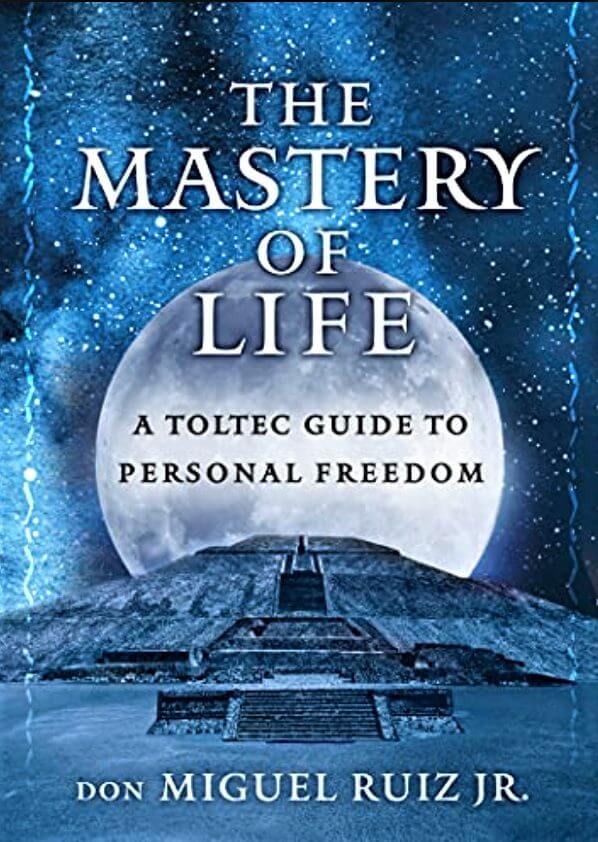
The Mastery of Life is the latest offering from renowned spiritual teacher and internationally bestselling author don Miguel Ruiz. In his latest work, Ruiz shows how the sacred plazas and pyramids of Teotihuacan act as a symbolic framework for the transformative path of Toltec Warriors—those who apply the teachings of the Toltecs in their own lives to win the inner battle against the forces of fear, domestication, and self-judgment. Ruiz expertly guides you on your own inner journey, helping you to experience the transformative power of the Toltec teachings from the comfort of your own home. Each chapter contains reflections and practical exercises designed to help you find personal empowerment and peace in your own life.
An avid book reader and proud library card holder, Angela is new to the world of e-Readers. She has a background in education, emergency response, fitness, loves to be in nature, traveling and exploring. With an honours science degree in anthropology, Angela also studied writing after graduation. She has contributed work to The London Free Press, The Gazette, The Londoner, Best Version Media, Lifeliner, and Citymedia.ca.




